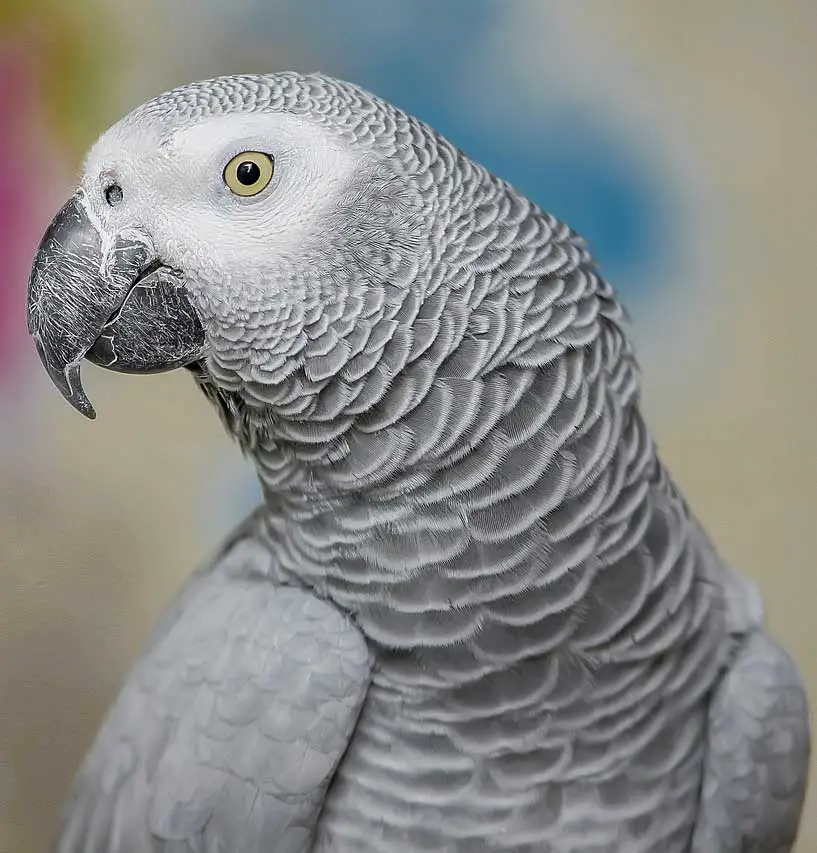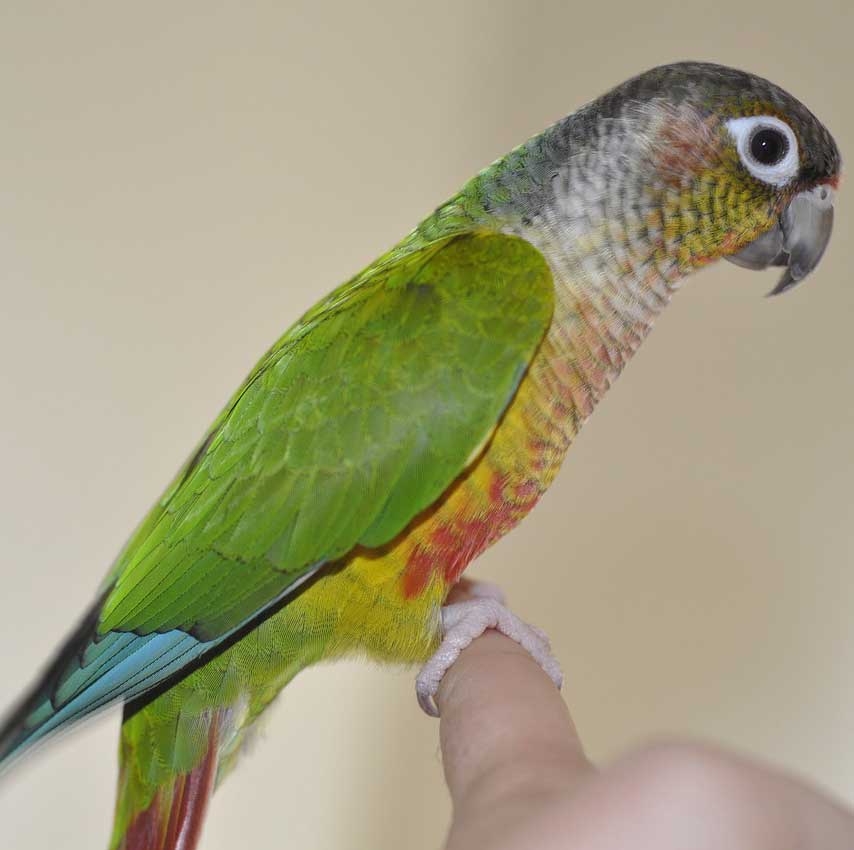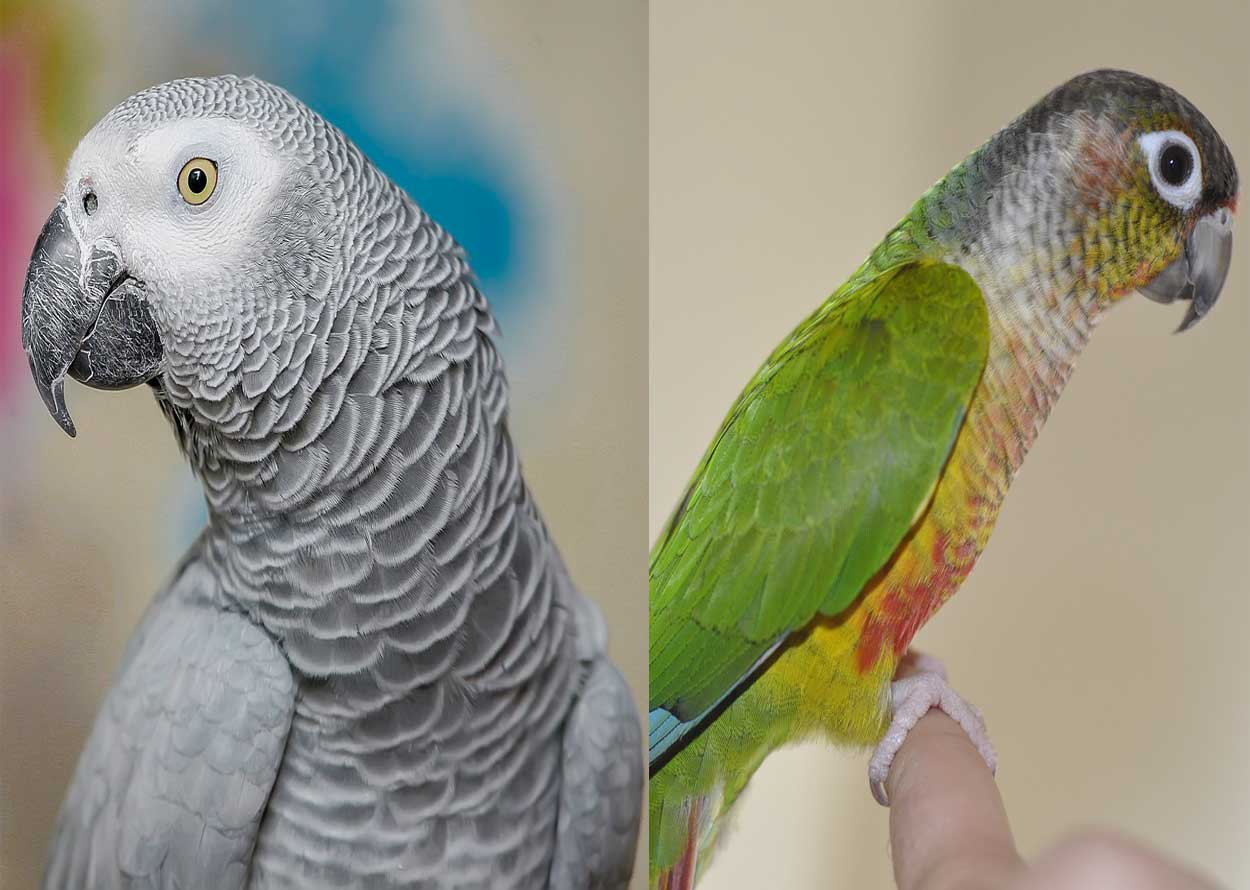African Grey vs Conure – Which Makes a Better Pet
If you are considering adding a bird to your family, you may have come across two popular options: the African Grey and the Conure. While both of these birds are beloved by bird enthusiasts, they have distinct differences that make them unique companions. As a potential bird owner, it is important to understand these differences in order to make an informed decision about which bird would be the best fit for you.
In this article, we will compare and contrast the African Grey and the Conure. We will give you an in-depth look at their physical characteristics, personalities, care requirements, and more. By the end, you will have a better understanding of these two birds. You will be to decide which one will make the perfect feathered addition to your home. So, let’s dive into the world of African Greys and Conures and discover which one is perfect fit for you.

African Grey: Bigger, smarter, pricier choice.
African Greys are known for their larger size, remarkable intelligence, and captivating speech abilities. With an average wingspan of 46-52 cm, African Greys can make an impressive addition to your home or aviary. Not only are they physically striking, but their exceptional cognitive abilities set them apart from other bird species. African Greys have superb ability to mimic human speech and even understand and use words in context.
It is important to note that their intelligence comes with a price – African Greys tend to be more expensive to purchase and maintain compared to other bird species. So, if you’re looking for a companion that will captivate you with their intelligence and engage with you on an intellectual level, the African Grey may be the perfect choice for you.
Read more-Cockatiels Vs Quaker parrots: Similarities and differences between Cockatiels and Quaker parrots.
Conure: Small, colorful, playful option.
If you’re in search of a small, colorful, and playful option for a pet bird, a Conure might be the ideal choice for you. These vibrant birds come in a variety of stunning colors, including bright greens, blues, and yellows, making them a delightful and eye-catching addition to any home or aviary. Despite their smaller size compared to African Greys, Conures make up for it with their energetic and playful nature.
They love to engage in interactive playtime. They have excellent ability to learn tricks and perform acrobatics. Conures also have a knack for mimicry and can learn a few words and sounds, although not to the same extent as African Greys. Additionally, Conures are generally more affordable in terms of purchase and maintenance costs, making them a popular choice for bird enthusiasts seeking an engaging and colorful companion.

African Grey: Requires more mental stimulation.
When it comes to African Greys, they require more mental stimulation compared to Conures. African Greys are highly intelligent birds. They have exceptional cognitive abilities. Their advanced problem-solving skills and impressive speech capabilities make them one of the most sought-after pet birds for those seeking an intellectually stimulating companion.
African Greys thrive on mental challenges and enrichment activities. They need plenty of toys, puzzles, and interactive games to keep their sharp minds engaged and prevent boredom. Regular social interaction and training sessions are also essential for their mental well-being. Providing an African Grey with a stimulating environment and opportunities for mental exercise is crucial to ensuring their overall happiness and preventing behavioral issues that may arise from a lack of mental stimulation.
Read more-Quaker Parrot vs Green Cheek Conure: Differences and Similarities
Conure: Needs plenty of physical activity.
Conures, on the other hand, have a different set of needs when it comes to stimulation. While they may not require as much mental stimulation as African Greys, Conures have high physical energy levels and need plenty of physical activity to stay healthy and happy. They love to fly, climb, and explore their surroundings. It’s important to provide them with enough space and opportunities for exercise, such as a spacious cage or an aviary, and regular out-of-cage time for stretching their wings and exploring their environment.
Conures also enjoy toys that encourage physical movement, such as swings, ladders, and ropes, which allow them to engage in natural behaviors like climbing and swinging. Regular playtime and interactive sessions with their human companions can also provide the physical exercise and social interaction that Conures thrive on. Providing ample opportunities for physical activity is essential to ensure the well-being and overall satisfaction of your Conure companion.
African Grey: Longer lifespan, up to 60 years.
African Grey parrots have a remarkable lifespan, with the potential to live up to 60 years or even longer. This is significantly longer compared to many other bird species, including the Conure. These intelligent birds require a well-balanced diet, regular veterinary care, and a stimulating environment to thrive. With proper care and attention, an African Grey can become a lifelong companion, providing years of joy, companionship, and intellectual stimulation. It’s important to understand and commit to the long-term responsibility that comes with owning an African Grey, as their lifespan requires a significant investment of time, effort, and commitment. However, the reward of sharing your life with such a magnificent creature for several decades is truly priceless.
Conure: Average lifespan of 20 years.
However, it is crucial to provide them with a nutritious diet, regular veterinary check-ups. Plenty of mental and physical stimulation is required to ensure their well-being and longevity. With proper care and attention, a Conure can bring joy and companionship for two decades.
As you consider the Conure as a potential companion, it is important to take into account their average lifespan of 20 years. This may be shorter compared to the African Grey parrot, it still represents a significant commitment of time and care. Conures have vibrant personalities and playful nature. This make them a delightful addition to any household.
Read more-Macaws vs African Greys: Which Parrot is Right for You?
African Grey: Better for experienced owners.
The African Grey parrot, on the other hand, is a species that is better suited for experienced owners who have the knowledge and dedication to meet its unique needs. African Greys are highly intelligent and require mental stimulation and social interaction to thrive. They have a remarkably long lifespan, often exceeding 50 years, which means they can be a lifelong commitment.
However, their sensitive nature and potential for behavioral issues, such as feather plucking, can pose challenges for inexperienced owners. It is important to provide them with a structured environment, consistent training, and specialized care to ensure their well-being. For those who are willing to invest the time and effort, the African Grey can be a rewarding companion with a fascinating and engaging personality.
Conure: Great for first-time bird owners.
When it comes to choosing a bird as a first-time owner, a Conure can be an excellent option. Conures are very interactive birds. They are relatively small in size, making them suitable for smaller living spaces.
Conures are also intelligent and can be easily trained. Which is ideal for beginners who are still learning about bird care. They enjoy social interaction and can form strong bonds with their owners. Conures are generally low-maintenance birds, requiring a balanced diet, regular exercise, and a clean living environment. With proper care and attention, a Conure can bring years of love and companionship to a first-time bird owner.
African Grey: Can mimic human speech.
African Grey parrots, on the other hand, are renowned for their exceptional ability to mimic human speech. These intelligent birds possess a remarkable talent for imitating various sounds and voices with incredible accuracy. From simple words and phrases to complex sentences, African Greys can amaze you with their linguistic abilities. Their advanced vocal capabilities are attributed to their highly developed brain structure and impressive cognitive skills.
In addition to mimicking human speech, African Greys are also known for their exceptional problem-solving abilities and keen observation skills. They require mental stimulation and regular social interaction to thrive and maintain their linguistic prowess. With their incredible talent for mimicry and their captivating personalities, African Grey parrots can make for fascinating and entertaining companions for those seeking an avian friend that can hold a conversation.
Conure: Known for loud vocalizations.
Conures, on the other hand, are known for their loud vocalizations, making them quite the chatterboxes. These vibrant and energetic birds love to express themselves through a range of vocalizations, from screeches and squawks to delightful chirps and whistles. Their enthusiastic and playful nature often leads to boisterous vocal displays that can fill your home with their vibrant sounds.
Some people may find their loudness endearing, it’s important to consider the noise level before bringing a Conure into your household. Mental and physical stimulation can help channel their vocalizations into more appropriate outlets, such as interactive toys, training sessions, and social interaction. As with any parrot species, understanding and respecting their natural behaviors and vocalization tendencies is key to creating a harmonious environment for both you and your feathered friend.
Final Words: African Grey vs Conure
When deciding between an African Grey and a Conure, it is important to consider your lifestyle, preferences, and ability to provide for the needs of each bird. Both species offer unique qualities and make great companions, but it is ultimately up to you to choose the perfect feathered friend for your home. Whichever you choose, make sure to do your research and provide proper care and enrichment for a happy and healthy bird. We hope this comparison has helped you in your decision-making process.
